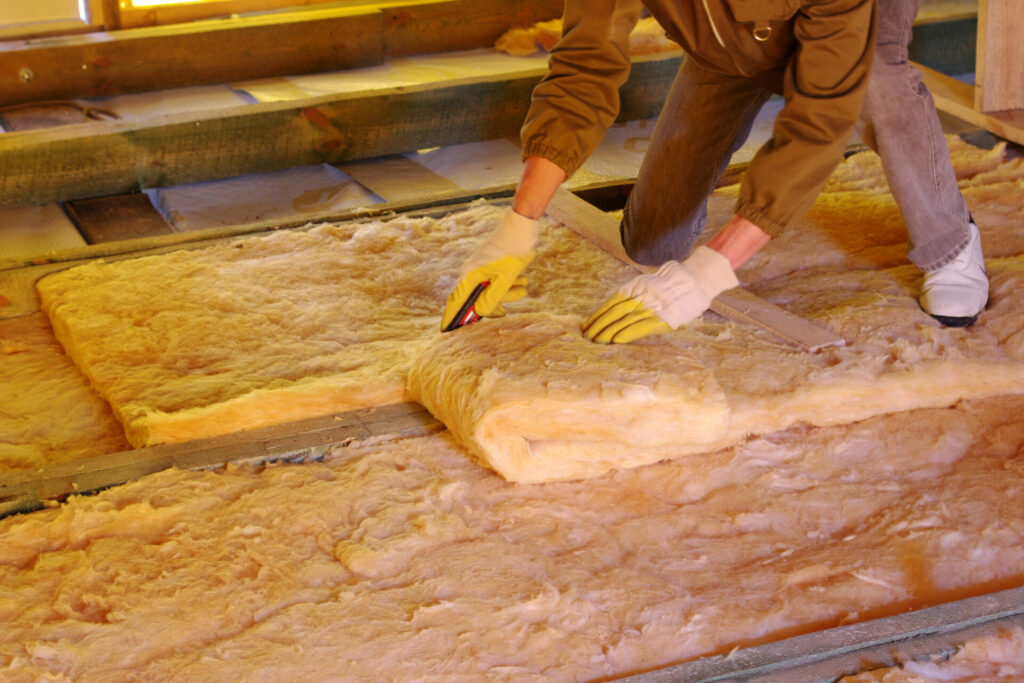Currently, insulation installers in NSW are not required to have a specific licence or insulation certificate for installation work. However, if they are working on installation projects costing over $5,000, they may need to hold a Contractor Licence issued by NSW Fair Trading.
This absence of regulation is in contrast to the new ACT and Canberra ceiling insulation regulations, where recent changes to regulations will require insulation installers in Canberra to be both trained and certified in order to ensure that works are undertaken both safely and correctly.
In November 2023, Amelior Insulation was invited to a seminar for Canberra landlords, where the attendees discussed the new standard. While this standard currently only mandatory for ACT installers who will install under the new Ceiling Insulation Minimum Energy Efficiency Standard, it demonstrates an increasing recognition at a Government level of the importance of insulation installers, the demand for quality workmanship and of the inherent risks associated with retrofit insulation work.
The Importance of Insulation Installer Certifications and Licences
In any industry, hiring licenced and certified professionals minimises risks and potential issues. In the insulation installing industry, certification reassures homeowners that contractors are qualified to do the job, and raises the expectation that they will comply with certain minimum standards of conduct and ethical guidelines.
If insulation installers in New South Wales were required to hold an insulation certificate, the industry-wide benefits would be significant. In addition to raising the bar in regards to quality workmanship and safe work practices, home owners would have peace of mind knowing that the insulation installers navigating around in their roof space have completed an appropriate training course.
Essential Skills Every Insulation Installer Should Have
Below is a list of essential skills that every insulation installer should be equipped with in order to be able to deliver an optimal result, every time:
Knowledge of insulation materials
Installers should demonstrate a thorough understanding of different insulation materials, their properties, and their appropriate applications. They should be knowledgeable about insulation types such as fibreglass, polyester, foam and cellulose, along with their benefits and limitations.
Understanding of heat transfer principles
Concepts such as heat transfer and insulation R-Value are essential knowledge for any qualified insulation installer. This understanding allows them to offer informed recommendations to customers regarding the most suitable insulation solution for their home.
Familiarity with NSW building codes and regulations
Insulation installers in NSW should be well-versed in building codes and regulations relating to the installation of insulation materials. They should understand the specific requirements for whatever building types they will be working on, including residential, commercial, and industrial structures.
Installation techniques and best practices
Any future insulation installer certification process should require NSW installers to demonstrate proficiency in proper insulation installation techniques. Thermal insulation is only efficient to the extent that it is properly installed, and the presence of needless gaps can significantly reduce the performance R-Value of the insulation.
Safety protocols and hazard mitigation
Any NSW insulation certification process must have safety in focus. Installers should have a comprehensive understanding of safety protocols related to insulation installation work, including handling and storage of insulation materials, personal protective equipment requirements and safe work practices. They should also know how to recognise potential hazards and implement appropriate prevention and control measures, not least in regards to safety. For example, ceiling insulation installers should learn how to use appropriate equipment like scaffolding, ladders and safety harnesses to prevent falls and injuries. On the other hand, underfloor insulation installers should thoroughly inspect the crawl space area, looking for any signs of potential hazards such as loose floorboards, exposed electrical wires or signs of pest infestations.
Installer Communication and Customer Service
In addition to the essential practical knowledge and skills described above, every professional insulation installer should possess good communication and customer service skills. They need to be able to interact with clients, properly assess their insulation needs and provide a clear explanation of the installation process. They ought to be able to educate clients about the benefits of insulation and offer sound recommendations and advice. Implementing a mandatory insulation certificate in NSW will teach the installer not only to work safely but to provide a good service to the customer.
Future Insulation Certificate For Installers in NSW
Although as of today, insulation installers in NSW are not required to hold a certificate or posses a licence to install insulation, there is a strong case to be made for a nationally recognised certification scheme.
As energy prices continue to rise throughout Sydney and New South Wales as a whole, both tenants and owner occupiers will increasingly feel the effects of under-performing insulation (or in some instances – no insulation at all). This will increase the demand for experienced supply-and-fit insulation installers. A properly implemented NSW insulation installers certification scheme will help to ensure that future retrofit insulation works to be carried out in NSW are carried out as efficiently and safely as possible.

